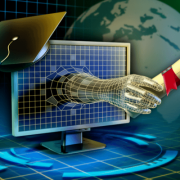Technology has become an integral part of our lives. It is present in almost every aspect of modern life, from communication to entertainment, and even healthcare. Technology has revolutionized the healthcare industry and has made it easier for doctors and nurses to provide better care and treatment to their patients. The use of technology in healthcare has revolutionized the way patients are diagnosed and treated and has made the delivery of healthcare services more efficient and cost-effective.
History of Technology in Healthcare
The use of technology in healthcare can be traced back to the late 19th century when medical devices such as x-ray machines and electrocardiographs were first introduced. Over the years, advances in technology have made it possible for healthcare professionals to diagnose and treat patients more quickly, accurately, and cost-effectively. This has resulted in improved patient outcomes and a reduction in healthcare costs.
Recent Technologies in Healthcare
Today, healthcare professionals are using a variety of technologies to diagnose and treat patients. These include electronic medical records, computerized physician order entry systems, telemedicine, and medical imaging. Additionally, technologies such as artificial intelligence, robotics, and virtual reality are being used to diagnose and treat patients and to improve the quality of care.
Challenges and Opportunities of Technological Development in Healthcare
The use of technology in healthcare has improved the quality of care, but there are still challenges and opportunities that need to be addressed. For example, the cost of technology can be a barrier to adoption, and there is a need for more research to understand the impact of technology on patient outcomes. Additionally, there is a need for better security protocols to protect patient data, and for healthcare professionals to be better trained to use the technology.
The Future of Technology in Healthcare
As technology continues to evolve, it is expected that it will continue to have a major impact on the healthcare industry. Technologies such as artificial intelligence and virtual reality are expected to revolutionize the way that healthcare is delivered and allow for more personalized care. Additionally, advancements in medical imaging and robotics will allow for more accurate diagnosis and treatment of diseases.
Conclusion
Technology has revolutionized the healthcare industry and has made it easier for doctors and nurses to provide better care and treatment to their patients. The use of technology has improved the quality of care and allowed for more accurate diagnosis and treatment of diseases. However, there are still challenges and opportunities that need to be addressed, such as the cost of technology, security protocols, and training healthcare professionals to use the technology. As technology continues to evolve, it is expected that it will continue to have a major impact on the healthcare industry and will make it easier for doctors and nurses to provide better care and treatment to their patients.


















Comments